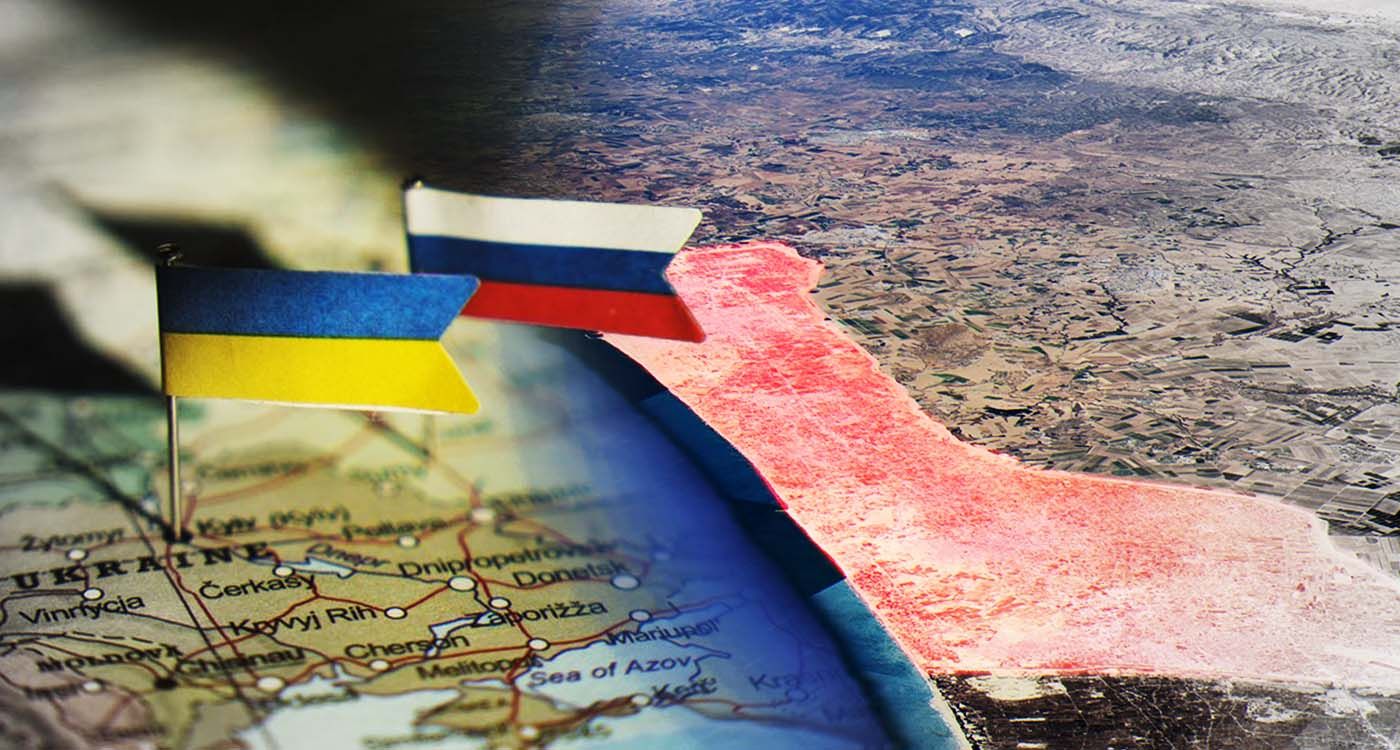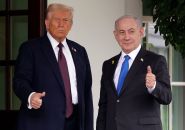- Home
- Middle East
- Solomonic Judgment

©This is Beirut
International issues are pending, and nothing seems to move toward negotiated solutions across Ukraine and the wide arc of conflicts extending through the Middle East. None of the actors is interested in peacemaking; on the contrary, these zones of active conflict tend to work in the best interests of countries vying for imperial conquests and showing no concern for the political fortunes of the ensnared states. These territories are mere appendages within competing imperial designs. We are in a typical scenario of frozen conflict where actors work actively, keeping conflicts smoldering and stoking them when need be. In other words, none of them is interested in finding solutions and promoting the search for peace as the ultimate gauge and ordering variable.
The whole negotiation process that took place in Alaska was a mere diversion that unveiled the true intentions of Putin and the limits of personal diplomacy. The war is pursuing its unhindered course despite the Kremlin’s gross military miscalculations and the destructiveness of the conflict, with its inherent absurdities. None of the objectives was achieved, and the war degenerated into gory bloodletting with no identifiable rationale aside from the delusions of a dictator who has a hard time adjusting to the well-established geostrategic and geopolitical facts of the post-Soviet era.
Russia is nowadays the hostage of a raving mind and of the ethos of a military institution that struggles to adjust to the realities of the post-Soviet era and the need to review its strategic culture. Negotiations are made impossible since the Russian dictatorship is unwilling to acknowledge the national autonomy of Ukraine and is still confident in its ability to challenge European security and undermine its strategic and intellectual foundations. How can a peace dynamic set in if the very premises of negotiations and discursive forms of conflict resolution are totally overlooked?
Ukraine, NATO and the European community have no other choice but to solidify Ukrainian defenses and offensive capabilities to make a future negotiated political solution possible. Furthermore, the Western community has to double down on its sanctions as a complementary deterrence strategy. A nihilistic dictatorship needs to be firmly confronted, contained, and ultimately defeated.
The stalemated war in Gaza will persist as long as Hamas is in control and fulfills its sabotaging role. The dilemmas of the Israeli hostage crisis are going to endure as long as Hamas claims control over the district and instrumentalizes it to serve its overlapping strategic and ideological agendas. While disposing of an exhausted civilian population that has no control over a terrorist organization, it is still manipulating the Israeli hostage trump card to wrest an unlikely deal that safeguards its political status and prerogatives and challenges Israel’s national security.
This equation is by definition self-defeating and intellectually inconsistent. The advocacy of European diplomacies for the recognition of Palestinian statehood before a settlement in Gaza is counterproductive and will by no means help end the war in Gaza. It is unacceptable to equate the state of Israel with the terrorist organization that originated this conflict, and one should never expect Israel to bow to international pressure.
Political benevolence should start with the reordering of the intellectual priorities: a negotiated solution to the Gaza quandary should start with a cessation of hostilities based on the unconditional liberation of the Israeli hostages, the withdrawal of the ragtag Hamas militias, and the creation of a transitional authority to oversee the deconfliction process, the demilitarization of the district, the setup of plans for reconstruction and the monumental task of humanitarian relief. The overall solution to the Israeli-Palestinian conflict should come at a second stage.
Lebanon is coping with travails similar to what Gaza is experiencing. The Lebanese government is still incapable of setting a practical plan for decommissioning Hezbollah and the Palestinian camps. In contrast, Israel’s thresholds of tolerance are shrinking by the day after eight months of procrastination and with the resumption of the rearmament process and its adjacent dynamics.
The forceful American mediation and the pressure of the international community have not overcome the recalcitrance of Hezbollah, its acolytes and its Iranian mentor. As long as the Iranian sabotaging factor is still operating, the negotiated denouement of the Lebanese, Iraqi, Yemeni and Syrian stalemates is unlikely to take place. This nest of vipers is unlikely to unravel unless it is irreversibly annihilated. The reconstruction of the integrated strategic platforms woven by Qassem Soleimani is still in view as long as the Iranian regime is in place. The idle maneuvering of the Iranian regime will pursue its course until the United States and the European Union are weaned off the falsehoods of empty diplomatic jockeying.
Lebanon’s endless negotiations over the decommissioning assignment are not meant to address the issues at stake; it is a deflection to foil international pressure, keep the tension alive, and prepare for alternative subversion courses. The latest moves of the current executive have been spurred by the intense American diplomacy and the Israeli wariness with procrastination and the indefinite deferment of constitutional mandates.
The same reservations hold for Syria and Iraq, where the absence of national consensus is undermining civil peace and the chances of sustainable political, socio-economic and environmental reforms in countries dealing with systemic dislocations and overwhelming post-war political dilemmas and reconstruction challenges. The same holds in Yemen, where the issues of civil concord and structural reforms are severely tested by endemic instability. However difficult and intriguing the issues at stake are, they necessitate a head-on confrontation if we are to stem the tide of pervasive volatility all along the outlined arc of conflicts.
Read more




Comments